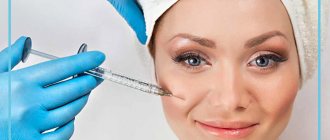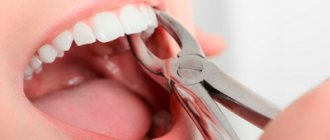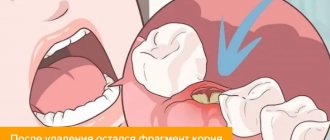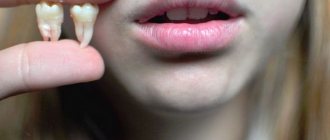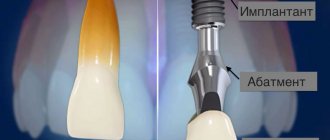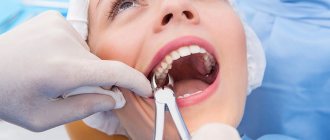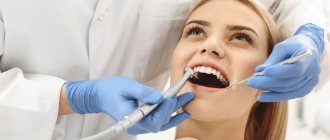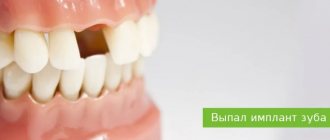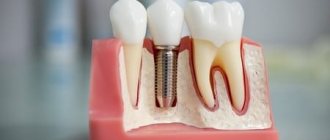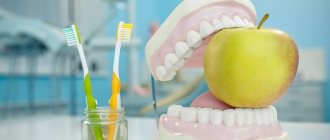The first days after surgery Medicines Physical activity Nutrition Example of a diet What can you drink?
Hygiene Lifestyle What not to do When to see a doctor urgently How to speed up rehabilitation An implant is a metal screw that is screwed into the bone in place of a lost tooth. In order for it to perform all the functions of a natural root, the implant must take root and be overgrown with bone tissue. This ensures its stability in the gum. Engraftment times vary from patient to patient, taking on average 3-5 months
. To ensure that the pin is secured in the gum and does not wobble under load, dentists ask you to follow a number of recommendations. This reduces the risks of complications and rejection to zero, speeds up healing and improves quality of life.
Implantation is a surgical intervention. After any operation, you need time to recover. The first days after dental implantation are especially important, when the mucous membrane is vulnerable to infections and the implant has not yet stabilized sufficiently.
What can and should be done in the first days after implantation surgery
Immediately after surgery, most patients feel some weakness
. These are the consequences of the doctor’s manipulations and strong psychological stress. The jaw may become numb due to the anesthesia. These symptoms disappear quickly, on the same day. Maximum, in 3-4 days, and their intensity decreases all the time.
The main recommendation these days is to stay within reach of a doctor. This will help you get advice if something goes wrong. In large clinics, such as the ROOTT MCDI, ongoing support for patients is organized. You can contact us with a question or problem at any time and from any city. You will definitely be given advice on care after dental implantation, even if you are far from Moscow.
How much does it cost to treat complications?
If complications occur due to the patient’s fault due to careless attitude towards new teeth, then in most cases the payment for their elimination also falls on the patient’s shoulders. The range of prices here is quite large - for example, it is easiest to apply sutures when they diverge, but it is more difficult to treat peri-implantitis and restore bone volume after rejection and removal of the implant. The cost of treating complications may well reach the cost of the implantation itself. Therefore, it is extremely important to follow the entire set of recommendations from the dentist after dental implants have been installed.
[1] Kuri F. Regenerative methods in implantology, 2014.
Author: Dzhutova A. V. (Thank you for your help in writing the article and the information provided)
Medicines and related procedures
Your doctor will likely prescribe pain medications for you. It is important not to get carried away and not to use the medicine more often than once every 4 hours. Although, in most cases, a tablet at night is enough. You should not take painkillers in advance, before the anesthesia has worn off. The pain syndrome may be very mild; pills are not needed.
- Cold compresses
will help relieve swelling. A frozen bag of vegetables, or pieces of ice in a bag should be wrapped in several layers of fabric for greater comfort and to prevent frostbite on the skin. For 1-2 hours, you need to alternate compress (5-10 minutes) and rest (20 minutes). Then compresses can be done occasionally. - Be sure to take all prescribed medications
. Antibiotics are designed to prevent the development of infections, antihistamines reduce swelling. Vitamin complexes supply the body with building substances for rapid recovery, and antibacterial solutions destroy pathogenic microflora in the oral cavity.
In the first days you should not rinse your mouth
. The disinfectant solution is simply held in the mouth for a few seconds.
What are the restrictions?
Implantation is a small operation, but still an operation. It involves the introduction of anesthesia, tissue damage, a healing period and, of course, the risk of complications if the rules are not followed. During flight, a person experiences pressure changes. Such jumps are not useful for patients who have unhealed tissue areas, fresh sutures, etc. They can provoke bleeding and increase swelling. Therefore, from the point of view of speedy healing of wounds, flying is undesirable. You can fly, but minimally and with extreme caution.
If implantation was carried out in combination with osteoplasty, the situation is different. In this case, air travel is strictly contraindicated for a month or at least two weeks.
Nutrition
When can you eat after implantation? The shortest period of fasting is until the anesthesia wears off. The general recommendation is to wait 3-4 hours
. Specific nutritional advice during post-implant rehabilitation may vary slightly depending on the protocol (minimally invasive or classic, immediate loading or not). However, the general principles are the same:
- give preference to warm food, food should not be too hot or cold;
- in the first days, avoid solid foods;
- avoid spicy, pickled, salty foods;
- make sure that the diet is of high quality and healthy;
- drink a lot of water ( 1.5-2 l
).
Approximate diet
Calcium is a building material for bones. Therefore, if you consume dairy products, focus on them.
- Cottage cheese, yoghurt, kefir, fermented baked milk and milk will help diversify your diet and avoid unnecessary stress on the implant.
- A baby food diet is ideal. It is subject to strict safety and nutritional requirements, so vegetable, fruit and meat (required!) purees will provide your diet with the necessary nutrients.
- Meat broths contain a lot of useful substances, including collagen - an important building material for tissues. In the first week, it is better to give preference to pureed soups.
- You can puree not only soups, but also vegetables and fruits.
- Porridge, milk, water, broth.
How long after you can eat solid food depends on the method of implantation.
When using the immediate loading protocol, you can transition to solid food much earlier, on the second day. Chewing load stimulates blood circulation and tissue regeneration
What is better to drink after dental implantation?
Water is the best choice. It not only replenishes fluid, but also removes residual elements of drugs from the body.
Herbal tea is also good. Provides fluid and calms nerves. The main thing is that it is not hot.
Fresh juices and smoothies will give you a boost of energy and a complex of microelements. Cold temperatures should be avoided here, so it's best to let the ingredients sit at room temperature rather than using them straight from the refrigerator.
Features of the suture removal procedure
After placing the artificial root, the dentist may use absorbable suture material to connect the edges of the wound. In this case, after the gums have healed, nothing needs to be removed. This is not required when “implanting” an implant in a bloodless manner, through punctures of soft tissue. In other cases, such manipulation cannot be avoided.
How to remove sutures from the gums after implantation:
- the doctor makes sure that the wound has healed;
- the area above the implant is treated with antiseptic agents;
- the seams are carefully cut with scissors;
- then removed using special tweezers.
After removing the sutures, the gums are re-disinfected and a sterile bandage is applied. There is nothing complicated in the procedure for removing sutures; it can also be carried out by an assistant. Anesthesia is usually not required. But if necessary, the physician can apply an anesthetic gel or spray to the gums.
Hygiene
If you have stitches, try not to touch them with your tongue and, especially, with your hands. Rinsing with antiseptics should be replaced with oral baths. Just hold the solution in your mouth without making vigorous movements.
- Brush your teeth with a soft toothbrush, gently and thoroughly. Bacterial plaque is a direct path to infection.
- It is better to use anti-inflammatory pastes with herbal complexes.
- A week after the operation, treatment with an irrigator is added to hygiene procedures. Water washes away small particles stuck between the teeth and massages the gums, promoting their healing after implantation.
After surgery, be sure to use a new toothbrush.
After the recovery period, it is recommended to care for your teeth in the same way as natural teeth. Clean 2 times a day
, use an irrigator, perform professional dental hygiene and visit the dentist
2 times a year
.
Learn more about caring for implants and the oral cavity
Hygienic care of implants and the oral cavity, as well as dentures (if they were installed immediately), is quite simple. In the first 3-5 days after implantation, you should limit yourself to oral baths - with antiseptic solutions or clean water. That is, you simply take the liquid into your mouth and hold it for 30-60 seconds. Active movements, such as when rinsing the mouth, can damage the stitches or contribute to the penetration of microbes into the wound. The same can be said about the bristles of a toothbrush. Therefore, you can start brushing your teeth the same 3-5 days after installing the implants. And the toothbrush must be new, because the old one may contain bacteria. An irrigator can be used to wash the subprosthetic space and wash away food debris approximately 10-14 days after implantation.
Lifestyle
Our life consists of more than just diet and exercise. There are a lot of things planned for every day. Not everyone has the opportunity to go on vacation or take sick leave. What you definitely shouldn’t do is go to work immediately after installing the implant. Give your body time to recover, take a time out, at least for a few hours.
- Avoid extreme temperatures. Cancel the bathhouse, sauna or ice-hole jumping. It’s also better to postpone the pool for a month.
- You should not fly on an airplane during the first week. If a sinus lift was performed, it is better to postpone the flight for a month.
- During your recovery from upper dental implants, you need to be careful when coughing and sneezing. Try not to puff out your cheeks, open your mouth only slightly. Blowing your nose is not recommended at all, but if necessary, do it without effort or strain.
- This is a good time to quit smoking. You absolutely cannot smoke on the first day, and then you simply cannot. If you can’t bear it, after each cigarette you need to rinse your mouth with an antibacterial agent like Miramistin. Smoking slows down recovery after implant placement. The percentage of successful engraftment in smokers is also lower than in non-smokers.
List of prices
| Service: | Price: |
| Mis (Israel) | 27,000 rub. |
| Alpha Bio (Israel) | 26,000 rub. |
| Noris (Israel) | 25,000 rub. |
| Adin (Israel) | 25,000 rub. |
| Xive (Germany) | 45,000 rub. |
| Impro (Germany) | 31,000 rub. |
| Ankylos (Germany) | 47,000 rub. |
| CSM Implant (Korea) | 27,000 rub. |
| NeoBiotech (Korea) | 25,000 rub. |
| Euroteknika (France) | 31,000 rub. |
| Anthogyr (France) | 27,000 rub. |
| Biotech (France) | 21,000 rub. |
| TBR (France) | 21,000 rub. |
| LIKO (Russia) | RUB 18,900 |
| IRIS (Russia) | 18,000 rub. |
| Rusimplant (Russia) | 19,000 rub. |
| Konmet (Russia) | 21,000 rub. |
| Express implantation | 25,000 rub. |
| Single-stage implantation | 25,000 rub. |
| The doctor's consultation | free of charge |
| Computer examination of the jaw | free of charge |
| Panoramic shot | free of charge |
| Tomography of the jaw | from 1,400 rub. |
| Installation of the healing abutment | 2,000 rub. |
| Open sinus lift | 40,000 rub. |
| Bone grafting (by transplantation method) | 30,000 rub. |
| Guided bone regeneration | 15,000 rub. |
What not to do after dental implantation
We have already discussed some prohibitions above. What's even better not to do?
?
- Brush your teeth with an electric toothbrush until osseointegration is complete. Vibrations and pressure can loosen the pin. This also applies to overly vigorous cleaning with a regular brush. Implants love tenderness and accuracy.
- Use dental floss until the gums are completely healed. The irrigator takes on the function of dental floss during rehabilitation.
- Eat nuts, seeds, crackers, chew candy
Dental restoration is too big an investment to waste your efforts because you want crackers.
It is strictly forbidden to drink alcohol after implantation. Fusel oil and impurities found in alcoholic drinks irritate the gums and provoke hematomas and inflammatory processes. Alcohol negates the effect of antibiotics. In addition, while intoxicated, it is difficult to follow recommendations, and it is easy to miss a doctor’s appointment or hygiene procedures. All this affects the healing of the implant.
Recommendations after implantation include a ban on coffee and strong tea. They raise blood pressure, which can lead to bleeding.
Why is it important to follow the rules?
The success of implantation - the correct engraftment of the implant into the bone - depends on a number of factors. Among them:
- A thorough examination before surgery. It is very important that before starting dental restoration using the implantation method, all contraindications are taken into account. Ignoring them can lead to serious complications and implant rejection.
- Competent planning, compliance of the implant and its position with the prosthesis that will be installed on it. The work of the surgeon and orthopedist must be coordinated to achieve an optimal result.
- Using a high-quality implantation system. The implant and all accompanying elements must be original, and the installation procedure must be strictly followed. Provided all manufacturer requirements are met, the risk of complications is minimal.
- The patient's compliance with all doctor's instructions. The choice of implant and its implantation are only the first stages on the path to successful prosthetics. How the patient behaves after the procedure also plays a huge role. Compliance with rules and restrictions is the key to success.
When to start worrying
Slight swelling, pain for 2-3 days
after surgery are considered a normal reaction of the body to medical intervention. The wound may bleed slightly for several hours. The general condition after implantation is also important. If you feel well, swelling on days 4-5 may simply be an individual trait.
However, you need to see a doctor if:
- the pain does not go away on the 4th day after surgery, or even intensifies and pulsates;
- numbness spreads over a large area and does not subside;
- swelling appeared after everything returned to normal;
- the temperature does not fall or rises;
- the bleeding does not stop for more than 3 hours;
- when you press on the gum you feel a sharp pain;
- the prosthesis has become loose;
- It hurts to chew even soft food a few days after the procedure;
- discomfort after implantation does not go away for more than 7 days.
Rehabilitation period after open sinus lift
The sinus lift procedure is divided into open and closed. An open sinus lift involves a more extensive surgical procedure. During the operation, an incision is made on the side of the jaw and a gum flap is peeled off, as well as a small hole is drilled into which bone grafting material is placed. After completion of the procedure, the material engrafts over several months and only after that the doctor installs the implant. A closed sinus lift is less traumatic: the doctor lifts the bottom of the maxillary sinus and places bone material through a drilled hole, which also serves as a bed for the implant. The operation can be carried out simultaneously with the installation of the implant, however, for such a manipulation several factors must coincide at once, so in the vast majority of cases an open sinus lift is performed.
Despite the difference in techniques, rehabilitation and restrictions after surgery are almost the same. Closed sinus lift is less traumatic, and the rehabilitation period after open sinus lift lasts somewhat longer, however, all the basic restrictions and rules of care remain approximately the same for both procedures.
